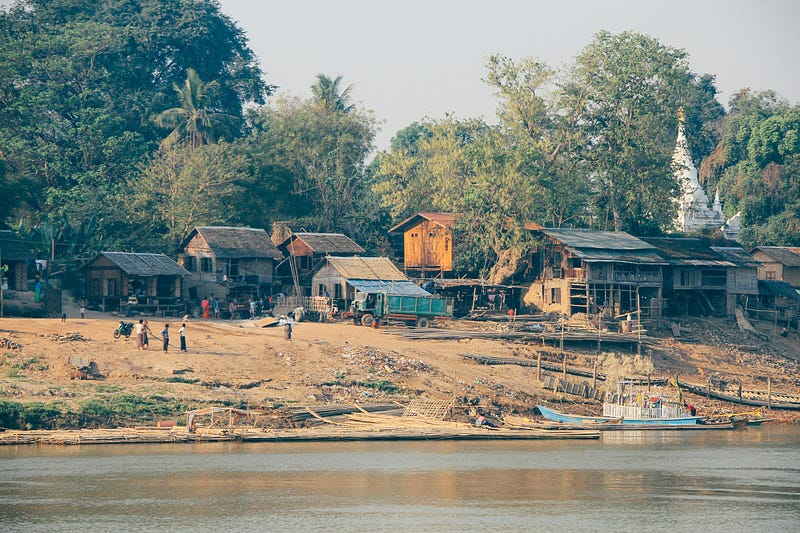Understanding the Economic Impact of Seasonal Malaria
Written on
Chapter 1: The Threat of Malaria in Tropical Regions
Malaria remains a critical concern in many tropical areas, particularly in rural communities where subsistence farming is prevalent. As the rainy season approaches, the risk of malaria, a disease spread by mosquitoes, increases significantly, threatening both health and economic stability. This article examines the financial ramifications of malaria as a seasonal illness, highlighting its effects on individuals, communities, and economies. The challenges posed by malaria—from healthcare expenses and decreased productivity to the strain on healthcare systems—require innovative solutions and strategic planning.

Chapter 2: Financial Burdens on Affected Individuals
The impact of malaria extends beyond health concerns, creating a substantial financial strain on individuals and communities alike. For instance, consider a smallholder farmer in sub-Saharan Africa who contracts malaria during peak transmission. This person not only incurs direct medical costs for treatment but also suffers a loss of income due to their inability to work. Such productivity losses can ripple through the local economy, affecting family finances and agricultural output, ultimately hindering economic growth.

One of the most pressing financial consequences of seasonal malaria is the cost of healthcare. In areas where malaria is endemic, families often shoulder significant medical expenses associated with diagnosing and treating the disease. These costs can include diagnostic tests, antimalarial medications, hospitalization, and other healthcare services. For communities already struggling economically, these financial burdens can lead families deeper into poverty, perpetuating cycles of economic hardship.

Section 2.1: Lost Productivity and Economic Development
Beyond direct healthcare costs, malaria inflicts substantial productivity losses at both individual and societal levels. When individuals fall ill, they frequently miss work or school, leading to decreased economic participation. In agricultural regions, this can disrupt essential planting and harvesting schedules, resulting in lower crop yields and heightened food insecurity.

Section 2.2: Strain on Healthcare Systems
The seasonal nature of malaria also strains healthcare systems that are often already under pressure. During peak transmission periods, health facilities can become overwhelmed with patients seeking treatment, resulting in overcrowding, prolonged wait times, and limited access to necessary care. These challenges can exacerbate existing health disparities and lead to less effective treatment outcomes. Furthermore, the financial resources needed to manage seasonal outbreaks may divert funds from other vital health services, further compromising healthcare delivery.

Chapter 3: Broader Economic Consequences
From a macroeconomic perspective, the seasonal prevalence of malaria presents significant challenges to economic growth and development. In regions heavily dependent on agriculture, the productivity losses due to malaria can obstruct economic progress and entrench poverty. Additionally, the costs associated with malaria treatment and prevention can place considerable strain on government budgets and foreign aid, limiting investments in crucial areas like infrastructure, education, and healthcare. Consequently, the cyclical burden of malaria can impede efforts to achieve sustainable development and improve overall living conditions in affected areas.

Chapter 4: Solutions and Resilience
While the financial implications of malaria are clear, there are effective strategies to mitigate its impact and strengthen resilience in affected communities. Investing in preventive measures—such as insecticide-treated bed nets, indoor residual spraying, and accessible antimalarial medications—can significantly reduce malaria incidence and alleviate the financial burden on individuals and healthcare systems. Additionally, enhancing healthcare infrastructure, improving access to quality services, and fostering community awareness can bolster health systems' responses to seasonal malaria outbreaks.
GAME CHANGER MOMENT
The seasonal prevalence of malaria presents substantial financial challenges for individuals and economies globally. From healthcare costs to productivity losses and healthcare system strain, the repercussions extend far beyond health. By grasping the financial implications of seasonal malaria and implementing targeted interventions, we can pave the way toward a future where malaria no longer hinders economic growth and well-being. Together, we can combat malaria and foster a healthier, more resilient world.
The first video titled "Want to know what it's like to have malaria?" provides a personal perspective on the experience of living with this disease, highlighting the challenges faced by those affected.
The second video, "Nothing But Thieves - Impossible (Official Video)," reflects themes of struggle and resilience, paralleling the fight against malaria and the need for community solidarity.
Ready to take action against malaria? Subscribe to our newsletter for insights, updates, and opportunities to engage in global efforts against this deadly disease. Together, we can contribute to building a malaria-free future for generations to come. Join us now!